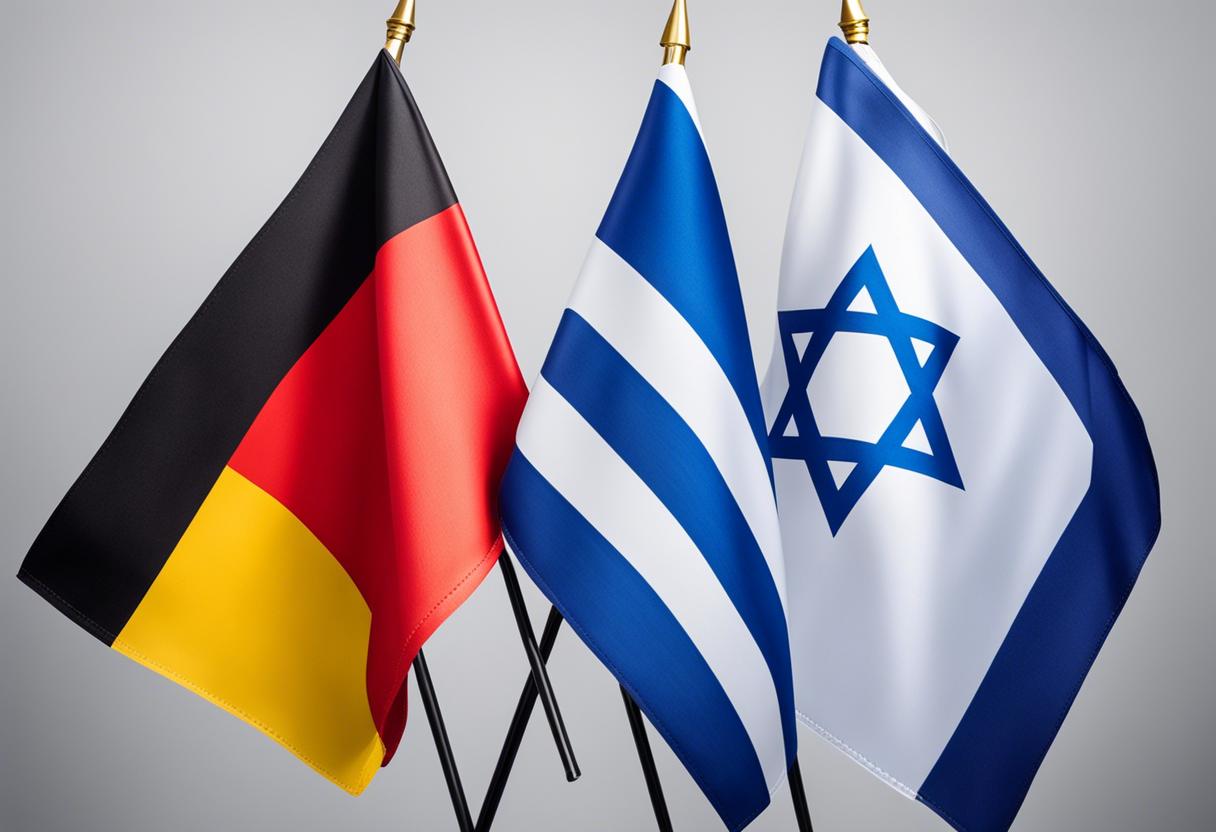German Chancellor Olaf Scholz affirmed Germany’s solidarity with Israel following the Hamas attacks on October 7th. However, six months later, this commitment seems to be wavering due to a heated disagreement between Israeli Prime Minister Binyamin Netanyahu and German Foreign Minister Annalena Baerbock.
This week, during Baerbock’s seventh tour of the area in six months, she cautioned Netanyahu that the continued aid blockages were pushing Gaza dangerously close to a famine. The Israeli leader countered these claims, alluding to pictures shared on Israeli social media platforms showcasing bustling markets and crowded beaches in Gaza. Netanyahu maintained these images were not falsified or akin to deceptive Nazi propaganda films that portrayed Jewish communities in the Warsaw Ghetto of Nazi-occupied Poland as thriving.
This assertion baffled Baerbock, who questioned whether Netanyahu was denying the authenticity of reports from German medical professionals working in Gaza and dismissing international media coverage.
Germany, like the US, has consistently supported Israel and its right to self-defense against Hamas. However, this disagreement left German officials bewildered, both by Netanyahu’s comments and the subsequent leak by Israeli sources.
At the G7 foreign ministers’ meeting in Italy, Baerbock revealed that Germany’s ambassador to Israel had communicated with the Prime Minister’s office to express their view on such discrepancies.
Despite German officials’ denial that the argument was the main topic of the hour-long meeting, no one in Berlin is refuting that the conversation took place. As diplomatic ties between Israel and Germany enter unexplored waters, public discontent over Israel’s retaliation to Hamas’s assaults is escalating.
Close to the Reichstag parliament building in Berlin, a pro-Palestinian encampment entitled “Occupation Against Occupation” has been set up. A prominent pink banner with names of global leaders, including those from the US, Germany, Canada, and Italy, bears a slogan: “History will not reminisce over your careers, history will remember your guilt and your collusion.”
Even though they possess an official permit for their camp, demonstrators highlight conditions akin to harassment from the police: they are allowed to communicate solely in English or German, devoid of music, prayers, or speeches.
In a public statement, the organisers expressed their plea for Germany to stop suppressing and outlawing pro-Palestinian expressions. Among their multiple requests include lifting the Gaza blockade, ceasing the military occupation in East Jerusalem, and terminating German weapon exports to Israel.
The latter led to Germany being legally confronted last week in The Hague. In the wake of this, Armaghan Naghipour, a lawyer based in Berlin, has lodged a legal objection in the city’s administrative court, seeking an immediate prohibition on arms exports and the repeal of already issued export permits.
Meanwhile, Berlin is concurrently showcasing the opposite facet of the Israel-Hamas dispute. On the premises of a synagogue located in western Berlin, a lavatory container serves as a reminder to Berliners about the remaining 133 Israeli hostages with Hamas. The container’s external walls bear sequences of hostage photographs, while the internal ambiance, filled with the echoes of gunfire, Arabic screams and the weeping of children emitted from speakers above, reinforces the ongoing struggle: a solitary, grimy mattress on the ground.
This innovative container installation is a joint collaboration between the local Jewish community and the Israeli embassy, intended to elevate understanding and compassion towards the Israeli citizens. A recent poll indicates that commonplace Germans are seeking a greater shift from Berlin on Israel.
Despite an initial wave of unity last October, this week’s Forsa poll revealed that 57 per cent of Germans desire a substantial, resilient stand from Berlin towards Jerusalem, while 36 per cent prefer a consistent support for Israel.

